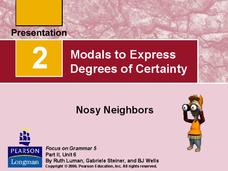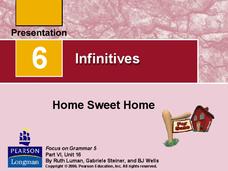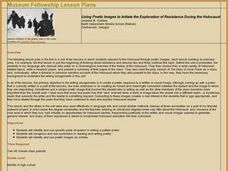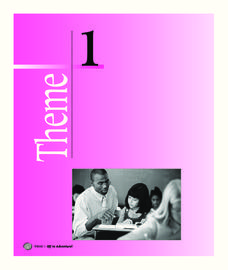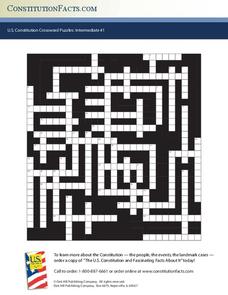Curated OER
Understanding the Declaration of Independence
Students work in groups to do a document analyxix of several documents. Students view the Martin Luther King speech, "I Have a Dream." They discuss the Battle of Saratoge. Students give a personal view of the reason the Declaration of...
Curated OER
"Father" of Our Country vs. "Father" of the Bill of Rights
Students examine the relevance of the Bill of Rights. In this Bill of Rights lesson, students study the parts of the Constitution and the ten amendments. They investigate the rights and responsibilities that accompany being an American....
Reed Novel Studies
Superfudge: Novel Study
Has everyone heard the news about the herd of antelope? Scholars explore homonyms with the novel study for Superfudge by beloved children's author Judy Blume. Additionally, they answer text questions and engage in language activities....
Pearson
Subject and Object Pronouns; Direct and Indirect Object
Replacing a gift can end up in an awkward moment—but not when replacing a noun with a pronoun! Watch the most effective ways to use subject and object pronouns, as well as direct and indirect object pronouns, with an entertaining...
Pearson
Modals
Ever wonder about the future? Now you know how to speculate in a grammatically correct way! Work on modals to speculate about events from the past, present, and future with a helpful and straightforward slideshow presentation.
Pearson
Adjective Clauses
Encourage the knights and princesses in your class to practice adjective clauses and relative pronouns in a fairy tale-themed presentation! Several slides review the structure of sentences with adjective clauses before prompting your...
Pearson
Infinitives
If you want to buy a house, what's the first thing you need to do? Learn about buying a home, and about infinitive phrases, with a helpful and straightforward slideshow presentation.
Pearson
Non-Action Verbs
A verb is something you do — but can you always see the action? Use a slideshow presentation to clarify the differences between verbs that describe actions, and verbs that describe senses, preferences, and emotions.
Curated OER
What's Proper?
Learners practice using capital letters for proper nouns and adjectives. They play a matching game with word cards and correct paragraphs with incorrect capitalization, and edit their work with a partner.
Curated OER
ASL: Lesson 15
ASL is fun to learn and now so easy! This is lesson 15 in a series of 30+ lessons of learning or teaching ASL in a comprehensible and strategic way. Use this lesson to reinforce identifying community helpers and conducting an interview....
Curated OER
Connectives
Using connectives and conjunctions is an easy way to vary sentence structure. Third graders review the given connectives, then use them to combine two simple sentences. The second section allows learners to use more words and phrases as...
Curated OER
Pronoun Practice
Pronouns, pronouns, pronouns! There are so many different types, and understanding their usage can be quite tricky. A chart at the top of the first page gives examples of subject pronouns, object pronouns, possessive pronouns, and...
Curated OER
Using Poetic Images to Initiate the Exploration of Resistance During the Holocaust
Students explore the role of resistance during the Holocaust. Viewing images, they complete a set of notes on the Holocaust and discuss the feelings they get from looking at the photographs. They identify the parts of speech used in...
US Department of Education
A Close Reading of Lincoln’s Gettysburg Address
Abraham Lincoln's Gettysburg Address provides the text for a series of close reading exercises that model for instructors how carefully crafted guiding questions can help readers think critically about what they read, thus developing...
Humanities Texas
Primary Source Worksheet: Lyndon B. Johnson, Excerpt from “To Fulfill These Rights”
"Equal opportunity . . . is not enough." Johnson's 1965 commencement address to the learners at Howard University provides an opportunity for participants to see how education was a key element in his vision for civil rights.
Humanities Texas
Primary Source Worksheet: Franklin D. Roosevelt, Excerpts from Fireside Chat on Economic Conditions
Franklin D. Roosevelt's April 14, 1938 Fireside Chat on economic conditions provides young historians an opportunity to polish their primary source comprehension skills. A great resource to add to you curriculum library.
Houghton Mifflin Harcourt
Off to Adventure!: Challenge Activities (Theme 1)
Off to Adventure! is the theme of an English language arts unit comprised of a variety of challenge activities. Scholars enhance skills and reinforce concepts by taking part in a grand book discussion, giving an oral...
Smithsonian Institution
Giving Speeches: George Washington's First and Second Inaugural Addresses
Students discuss the purpose of the President of the United States giving an inaugural address. They describe their impressions of any inaugural speaches they have heard or read. Students research events leading up to Washington's first...
Curated OER
Measurements with Noncount Nouns
In this non count nouns worksheet, students name the items in the picture and use a unit of measure from the box. Students complete 14 examples.
Curated OER
Grammar and Writing: Writing Process and Action Verbs
Students review and revise their writing from a portfolio created during a thematic unit. In this writing activity, students working in pairs examine and revise written pieces using action verbs. They add at least 10 action verbs to each...
EngageNY
Revisiting Big Metaphors and Themes: Revising and Beginning to Perform Two-Voice Poems
Now that your class has read all of Esperanza Rising, take the time to tackle big metaphors and themes. Pupils will participate in an activity called Chalk Talk, in which they circulate around the room in small groups and add...
Constitution Facts
U.S. Constitution Crossword Puzzles: Intermediate #1
All of the details of American history fall into place with a clever crossword puzzle. Nearly 100 clues prompt middle and high schoolers to fit the correct answers to topics including the American Revolution, the Civil War, and...
Deliberating in a Democracy
Preventive War
"Those who knocked these buildings down will hear from all of us soon!" - George W. Bush. Scholars investigate and analyze the events of September 11, 2001 in ushering in the Bush Doctrine on foreign policy. Using primary documents as...
EngageNY
Close Reading: Focusing on Taking a Stand (Chapter 2 cont.)
Scholars complete a close read of To Kill a Mockingbird and determine why characters take a stand. They use text-dependent questions and Note-catchers to help guide their thinking. Readers review the Taking a Stand Anchor chart and...






